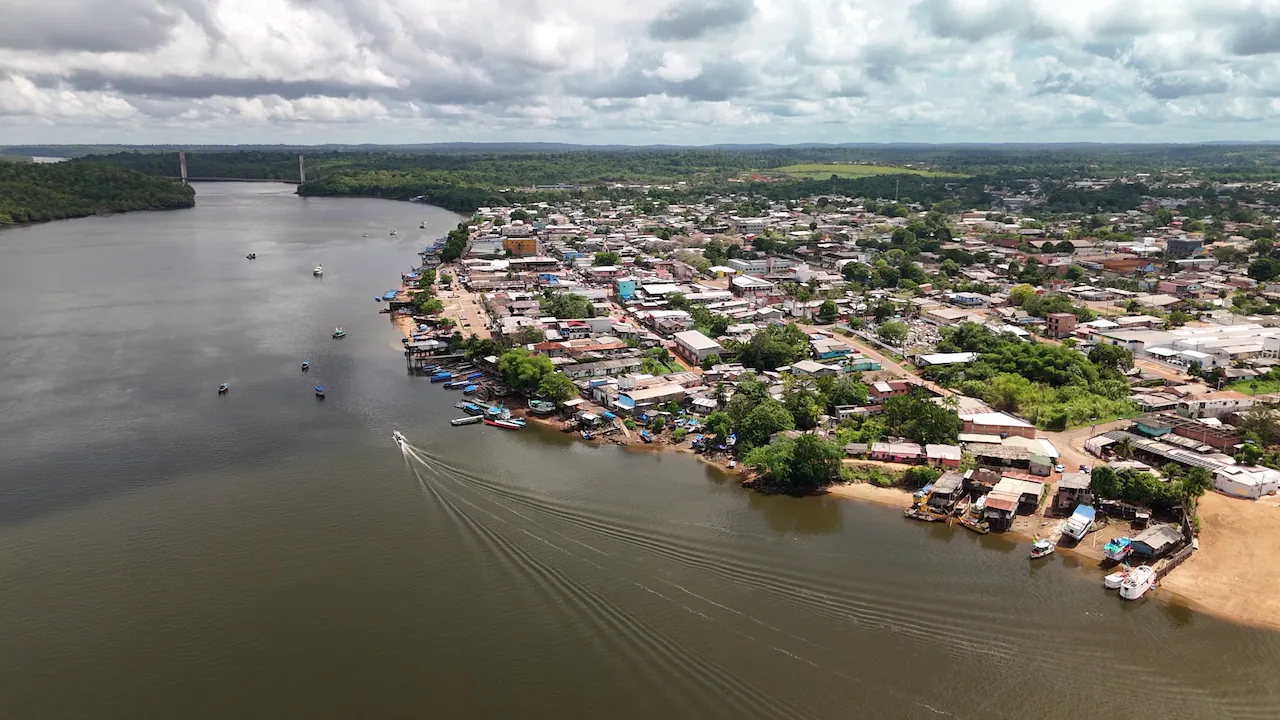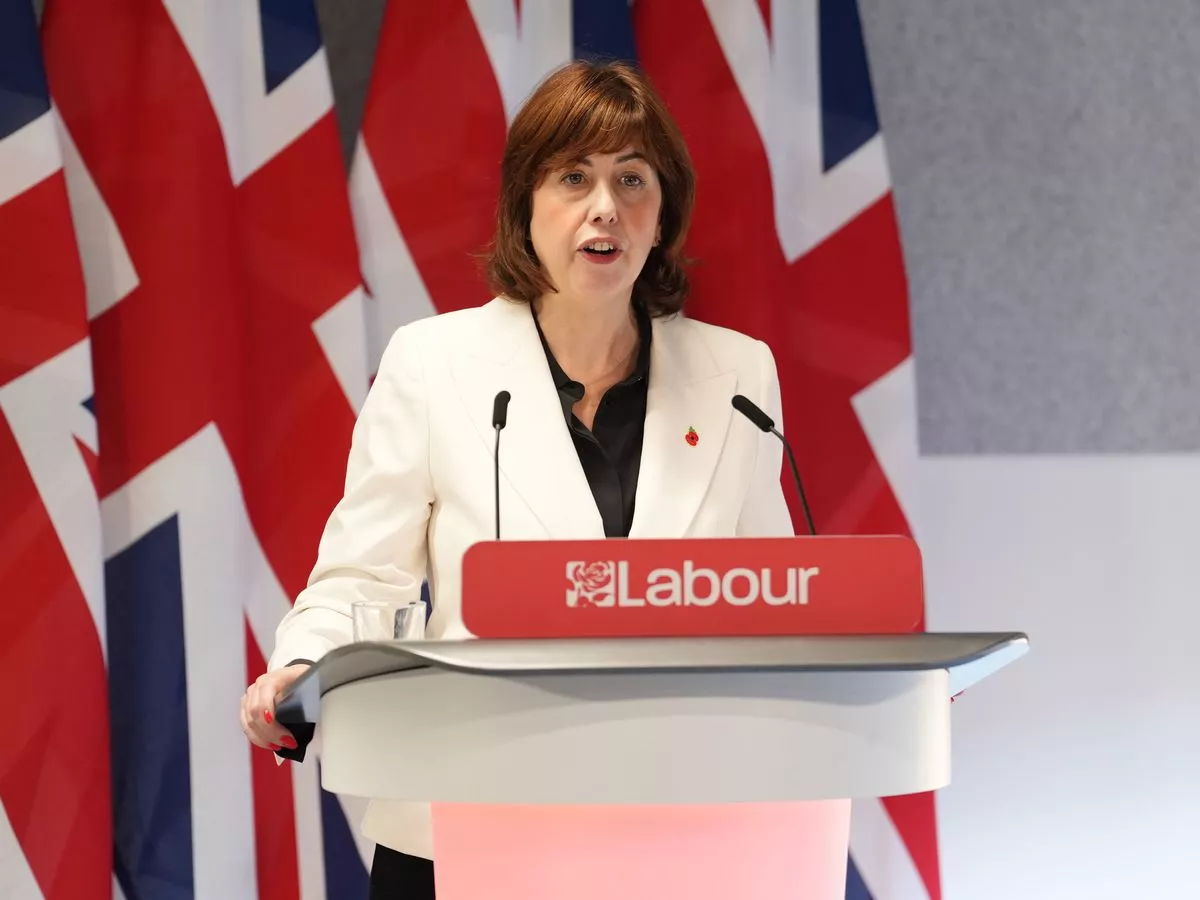Copyright cbc

At the river dock in Oiapoque, a frontier city near Brazil’s northern coast, Cleidiney Ribeiro steers his river boat into the water. “Progress is coming to Oiapoque,” he says with optimism, as he motors out an hour and a half to where the river meets the Atlantic Ocean. Brazil’s state owned oil company Petrobras has just begun exploratory drilling 170 kilometres off the Amazonian coast, just as Brazil opens the world's largest climate conference in Belém, COP30. As host, Brazil’s president, Luiz Inácio Lula da Silva told world leaders Friday, “Earth can no longer sustain the development model based on the intensive use of fossil fuels.” But his government is on the cusp of another oil boom, if deposits are confirmed in the Foz do Amazonas basin, part of it 500 kilometres from the mouth of the Amazon River. “It’s very problematic,” said Suely Araújo, public policy co-ordinator at Brazil’s Climate Observatory. Brazil is already a big oil producer — the eighth largest — and Araújo said the government’s “decision to increase this production in the middle of the climate crisis … makes no sense.” Lula calls for energy transition at COP30 Starting Monday, Belém hosts tens of thousands of delegates and observers in the Amazon city of 1.3 million. Accommodation is scarce — two cruise ships anchored off the coast will house some of the delegates and the president is staying on board a luxury boat. COP30 will try to whip up new momentum to tackle planet-warming fossil fuel emissions, and urge countries to move faster towards sustainable sources of energy. “Brazil is not afraid to discuss the energy transition,” President Lula said at the leaders summit, promising to use some of its oil revenues to fund it. But over 1,000 kilometres north, in Oiapoque, the momentum is all about oil; black gold, which could transform one of the most disadvantaged regions in Brazil, according to the government. Hanging hopes on oil deposits “We all hope the oil is out there,” said Romeu Costa, who manages the small Oiapoque airport, serving mostly medical flights and the oil industry, with no commercial air traffic yet. “It will develop the city,” Costa said, adding that real estate speculation is already growing in the city of 27,000 people. Twice a day now, a few dozen workers fly in from cities further south, then transfer to helicopters to go out to the drill ship. Petrobras has the rights to Block 59, so far the only offshore territory granted an exploratory licence to drill and confirm the size of the deep oil deposits. But at an auction last June, the government awarded 19 more oil blocks in the Foz do Amazonas basin to companies including Exxon Mobil, Chevron and a Chinese consortium. Companies must then apply for an exploratory licence. Petrobras has spent over a decade working on an exploration plan and environmental tests, including building a large, new wildlife hospital in Oiapoque to gain approvals. Its efforts were rewarded just two weeks before the COP30 climate talks. “It's the moment of coronation, of our victory, of our work, and of our responsibility to the country and the environment,” said Wagner Fernandes, who represents a union of oil workers and works for Petrobras. 'A winning ticket': energy minister The deposits in Brazil’s equatorial margin could be vast, as much as 30 billion barrels of recoverable oil, according to the ANP, the National Agency of Petroleum, Natural Gas and Biofuels. Brazil’s energy minister called it “a winning ticket” which could generate tens of thousands of jobs and address poverty in the region. But future drilling, if granted, could encroach nearer the mouth of the Amazon River. Protests last summer failed to stop the latest oil auction. “I'm very worried,” said Suely Araújo, who previously worked for the state environmental regulator IBAMA, and declined to issue an exploratory permit to Total Energies in a nearby block in 2019. “It’s a fragile region and they will have problems because even if they don't have accidents, the oil production always generates a kind of permanent pollution, a silent pollution.” Indigenous communities rally in opposition A 20-minute drive outside Oiapoque, through the Amazon rainforest, Indigenous tribes live along the Curupi River on contiguous territories formally recognized by Brazil in 2002. Chief Wagner Karipuna says they weren’t consulted for their input on the oil licence, which he fears could risk the waterways and land they control. “If it were to cause a leak, the water has no border.... It will contaminate our river, our fish, the game, the birds, everything will suffer,” he said. At a gathering last week, more than 50 Indigenous leaders in the Oiapoque area signed a letter opposing the development, demanding an official meeting with senior representatives of Petrobras. Karipuna says he’s skeptical that the promise of jobs will come to them. “You need to have higher education … to work for Petrobras, and we Indigenous people don't have that. The government is deluding us with false promises,” said Karipuna. Indigenous groups are preparing for a large protest at the COP30 venue in Belém to attract international attention and put pressure on Brazil. “I do understand it’s hard not to see [Brazil’s position] as incoherent. We like things simple, yes or no, right or wrong,” said Heloisa Borges from Rio de Janeiro. She’s the director of oil, gas, and biofuels studies at the energy research company EPE. “We will still need a significant amount of oil and gas by 2050,” she said, citing the International Energy Agency’s estimates that in 20 years the world will need between 24 and 55 barrels of oil per day. “Just because we think we don’t want it, doesn’t mean we will not need it,” said Borges, adding that Petrobras has a “social licence” in Brazil. “Brazil is very proud of its oil and gas industry. Petrobras is a company that in the popular imagination of almost all Brazilians." In Oiapoque, there is enthusiasm, but not everywhere, says Estafany Furtado, who works for Iepé, an organization helping Indigenous groups in the north. “Those who are against [the drilling] at this moment are suffering from threats from the political class and from people who are in favour. I myself have suffered from some threats,” she said. Two years ago at COP28 in Dubai, nearly 200 countries agreed to “transition away” from fossil fuels. Since then multiple countries including Brazil and Canada have reached record oil production. President Lula calls the Belém gathering “the truth COP.” His critics say, the truth is the world is still expanding fossil fuels and planet warming emissions are still rising globally, though not as fast as before. It’s an immense challenge for President Lula and the 50,000 international visitors expected in Belém.



